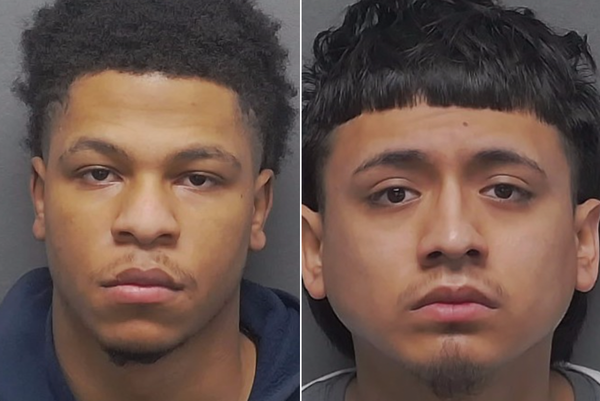
I am the last boy to have been beaten at Eton. I confirmed this in a conversation with Tony Little, the then headmaster of that venerable school, during his 2002-15 tenure. “Our archivist has checked the files,” he said, “and can find no record of any beating since summer 1980.”
“So if I were to say I am the Ruth Ellis of corporal punishment at Eton,” I asked hopefully, referring to the last woman to be hanged in Britain, “would I be correct?”
“If you wish to make such a claim,” Little replied, “that is certainly within your grasp.”
From Lord of the Flies to Hogwarts, the dark side of boarding schools occupies its own fascinating genre of horror and bleak comedy. Earl Spencer’s recent memoir spotlighted the long-term psychological impact of “boarding school syndrome”. Insights into that culture have informed how we understand our three most influential recent leaders: old Etonians David Cameron and Boris Johnson; and Winchester-educated Rishi Sunak. Where did their entitlement and casual cruelty come from? Did it originate during their formative years, in traumas experienced far from their mums and dads, in secretive halls, at the hands of unaccountable masters?
My emotional Waterloo happened in January 1984. I was 13, in my first year at Eton. I was in a house – one of 25 buildings where Etonians live – where there was much illicit drinking. One Saturday afternoon, I went to Windsor with an older boy, bought a bottle of Bacardi from a supermarket, and got wasted. I was found vomiting in my room by the dame, who looked after the food and administration for the house. She took me to the sanatorium, the school’s own mini-hospital, as I vainly protested: “It was the chicken.”
The following morning, my housemaster visited me in the “san”, and advised me of the gravity of my misdeed. “You’ll be speaking to the police this afternoon, and you’ll be on the bill on Monday,” he said. The bill was a dreaded disciplinary process where boys were summoned to the headmaster, or in the case of younger boys like myself, the lower master.
The police interview was a relative breeze. The older boy had also been busted, so he was there, too. We told the truth, and the police prosecuted the supermarket.
It was my appointment with the lower master that would end up being a seminal moment in my life. His name was John Anderson, but all the boys called him Jack. Just that word “Jack” inspired Voldemortian terror. Some called him Jack the Ripper because, as a teacher, he had an enthusiastic tendency to punish substandard work with a “rip”, tearing the top page of the boy’s exercise book, and forcing him to present the shameful effort to his housemaster and tutor. One of my best friends told me of a terrifying encounter he had with Jack, right after he had got a spiky new Billy Idol haircut. Jack had collared him in the street, and started smacking down his hair with the flat of his hand, hissing: “I do not like this punky haircut, I do not like this haircut.”
Despite Jack’s menacing reputation, I never met him during my first two “halves”, or terms, at Eton. So I did not yet have any palpable reason to fear him.
In my penultimate Monday morning “division” – Eton-speak for a class – there came a knock on the door from a member of sixth form select, a group of senior, academically successful boys, who had the privilege of wearing silver buttons on their waistcoats. I would like to believe this boy was David Cameron, who was in his last year at Eton at this point, but I’ll never know. Whoever he was, he called out ceremonially: “Is Doggart in this division?”
I raised my hand, and there was a rumble of “whoos” from the other boys.
“He’s to see the lower master at midday.”
I was nervous but not frightened. I knew how to get to the lower master’s lodge since I had learned it in the “colours test”, for which boys must memorise the location of the school’s buildings, as well as the colours each house played in. We underwent an examination by the boys in their final year, who are known as “library”; I was examined by 10 library members sitting behind a bright light pointed straight at me, Stasi-style.
I had to wait in Jack’s dark, dusty entrance hall. A sixth form select official enforced silence between me and the other boys also on the bill. They might have been there for persistent lateness, and repeated appearances in the “tardy book”, or for the crime of “impertinence”, which would later see me back on the bill, for arguing with my classics teacher that Robert Ludlum was a better writer than Homer. That day, I was the last boy to be seen. My first sight of Jack was a silhouette at the top of the stairs. “I will manage this now,” he said, dismissing the sixth form select boy.
Jack and I were now alone.
“Come up, boy,” he barked.
I climbed the creaking stairs, and walked into his oak-panelled study. There was an antique wooden chair standing in the middle of the room.
“Remain standing,” he said.
Jack was a tall thin man, in his 60s. He had beady eyes, and thin grey hair tightly combed back, startlingly reminiscent of Peter Cushing’s Star Wars villain Grand Moff Tarkin.
“Doggart,” he snapped.
“Yes, sir?”
“That’s a fine name,” he said. “You related to Hubert Doggart?”
“Yes, sir.”
“Fine cricketer, fine headmaster.”
“Yes, sir.”
“I fear he’ll be very disappointed in you.”
I didn’t respond, unclear how the matter in hand had anything to do with my half uncle. He had indeed been both the respected headmaster of King’s school, Bruton, in Somerset, and an illustrious cricketer, as an England player, and president of the MCC. I was unaware of Uncle Hubert ever having got into any trouble.
“Do you realise just how serious this offence is?” Jack pressed.
“Yes, sir.”
“It gives me no pleasure,” he fixed his eyes straight at me, “but I am going to have to beat you.”
“Sir?”
I was taken completely by surprise. I thought flogging had been abolished. I knew that the school’s then headmaster, Eric Anderson, whose lovely wife, Poppy, was my English “beak” (Eton-speak for teacher), had said he did not believe in corporal punishment.
“Take off your jacket,” Jack ordered.
His icy authority was devastating. I removed my tailcoat. In preparation for carrying out his terrible duty, he took off his coat, too.
“Nothing down your trousers?”
“Excuse me, sir?”
“A newspaper? A book?”
I touched the flimsy material of my pinstripe trousers, and wished then I had received some warning of what was about to happen. “Nothing, sir.”
From the corner of the room, he picked up a thin brown wooden cane, around 4ft long, and flexed it. My heart began to thump.
“Listen carefully, boy. I want you to start by placing your hands on that chair.”
Haltingly, I turned and put my hands on the back of the chair.
“On the seat, boy. Hands on the seat!”
I complied, placing my palms on the cold dark wood. My backside was now facing directly towards him.
“I am going to give you six strikes,” he explained, “but if you come up, you will receive an extra one. Understand?”
I stared down at my white cuffs. “Yes, sir.” I took a deep breath, and didn’t look back. There was a high, whistling sound and then thwack – searing, stinging pain. I screamed, as my back jolted upwards.
“You came up!” Jack said. “What did I tell you, Doggart? That’ll be one more.”
“I couldn’t help it,” I implored, touching gingerly the burning line across my buttocks.
His eyes fixed on me. “Get back down, boy!”
I bent down, but this time looked back, around my legs. I saw him raise the cane, and instinctively moved my left hand to protect myself.
“Put it back,” he ordered. “I can promise it’ll hurt even more on your hand.”
I obeyed. My breath was shaking. I tried to focus at the isosceles triangle formed by my two hands next to each other.
Whistle, thwack – “Aaaah!” Another burning, biting slash. I leapt up again.
“You’re only hurting yourself, you know,” Jack said.
“But, sir ,” I begged.
“Get back down!”
“Just wait, please.”
“Down!”
I leaned back down, terrified this could go on indefinitely. This time, I placed my hands on the side of the seat. I gripped hard.
Whistle, thwack – the biting pain was there again, I screamed again, but I held on. I stared into the shadowy grain of the chair. How old was it, I wondered?
Thwack.
Five hundred years, like the school, maybe?
Thwack.
How many other boys had stared at the same chair, as its owner had tormented them?
Thwack.
My focus on the wood became so intense I stopped hearing or feeling the impact of the final three lashes.
Jack’s voice jolted me back: “Up, boy!”
I rose unsteadily, my legs shaking. I turned and stared at him blankly. He averted his gaze, walked behind his desk and began writing something.
“Put your tailcoat back on.”
I moved mechanically, still looking at him. I began to feel something I had never felt before, a kind of anger, a white rage. I wanted to punch him. I wanted to shout at him, rebuke him for being so beastly, but nothing came out of my parched throat. His bony hand pushed a piece of paper towards me. “I trust I won’t be seeing you again. Return to your division.”
I clambered gingerly down the stairs, closed the heavy door behind me, and stepped outside into the freezing air of Weston’s Yard. I burst out crying. Tears poured uncontrollably down my burning cheeks. I wanted someone to soothe me, my grandmother maybe, but I was so far from home. How could my parents be paying some huge amount of money (£50,000 a year at today’s rates) to have violence inflicted on me? Anger and humiliation and pain seethed together as I walked through the deserted Eton streets towards my Latin class.
I stood outside the division room, waiting for the redness in my eyes to disappear. I didn’t want my classmates to see any evidence of tears. I stared at the paper Jack had given me. It was the bill slip. In typed letters my crime was defined: “Drinking.” Beneath it was the punishment meted out: “Beaten.” My Latin teacher was Archie Nicholson, a friend of my grandfather’s. I felt ashamed.
I opened the door without knocking. My peers were mostly poring over their desks, in the midst of a test. Mr Nicholson looked down at me from his raised desk, nodded, and gestured for me to come in. As I took my seat, I could feel the swollen scarlet gashes.
Mr Nicholson came over and handed me the test. “Are you all right, Sebastian?” he whispered.
His tender use of my first name nearly made me cry. I held it back. “Yes, sir. Thank you, sir.”
* * *
It was 27 years after my beating when I told Tony Little of my experience, and asked him what he thought. “There’s been a big generational shift,” he said. “I was at Eton between 1967 and 1972, and I don’t recall any incident of it then. I can’t find an exact moment when it ended, but it was certainly dead by the time we came to a national view.” (Parliament outlawed the practice in state schools in 1987 and private schools in 1998.)
“Nowadays, when boys go to the school museum and see pictures of the wooden beating block from the 19th century, they can’t believe it happened. It was such a different time, and beating is now far off the radar.”
I asked Little, who stepped down as headmaster in 2015, why he thought that change happened. “I’ve been in teaching for 30 years,” he told me, “and a headmaster for 20 years, and at no point have seen I seen any virtue in it.”
“Do you think it’s something the school should be ashamed of?” I asked.
“It was a different time,” he replied. “It’s hard to get back into the mindset of what happened 25, 50, 100 years ago. Today, we teach boys through the way they live and work, to respect others. Laying into them physically is just not appropriate.”
Back in 1984, my beating certainly didn’t work as a deterrent. Once the story had spread round school, I had a badge of honour. I was the first boy in my year to have been busted for drinking, and the beating bestowed on me the status of ultimate cool: I was A Rebel.
As for whether it stopped me drinking, I went on to become a founding member of an underground cocktail club (whose supplier was Crown Prince Dipendra of Nepal until he was busted and the Sun ran a story headlined “Eton Prince Sells Booze to Toff Pals”). I was hungover almost every Sunday morning mass for the rest of my time at Eton. But I did learn the importance of the 11th commandment – thou shalt not get caught! – and was never punished for drinking again.
The futility of Jack’s beating taught me a vital lesson – that violence is the last resort of the incompetent. That lesson has influenced my own parenting, seeking to find non-punitive ways to guide and discipline my two now-teenage children.
Those to whom I have since told the story have asked if I feel “traumatised” by the beating. This is a complex question. I do think Jack abused his power, and violated his duty of care. He did cause physical and emotional harm, to which no 13-year-old should be subjected. But I don’t feel like a victim. Life is nasty, brutish and short. My maternal grandfather was imprisoned and tortured by the Nazis and never complained about it. There are bullies everywhere. Jack’s beating was a test of how to deal with one such bully.
Over the four years I spent at Eton after the beating, my anger hardened towards Jack. I felt the misdeed of my rum consumption was far outweighed by the severity of the thrashing. Why had I been singled out for a beating? Two years before, David Cameron had been caught smoking cannabis, and had been grounded for two weeks and given the school’s traditional punishment of a “Georgic”, copying out 2,188 hexametric verses from Virgil’s four books of Latin poetry. (I was unaware of this at the time, but when he spoke about it years later, it did instil a very rare feeling of complicity with him.)
For the rest of my time at the school, I set out to avenge Jack’s harsh injustice. I took every opportunity I could to pass him in the street and not “cap” him – a rule that obliged boys to raise the finger as a mark of respect to beaks they passed outside. When he stopped me to remonstrate, I would invariably say I had not noticed him. That was always worth the 50p fine he imposed.
In my penultimate year, I produced and acted in a play, a cold war romantic drama, Interpreters, by Ronald Harwood. Jack had a rule that boys in the two lowest years, called “E and F blocks”, could not go out of their houses on weekday evenings. I sent a message to him requesting that they be permitted to attend the play because of its immense sociopolitical importance. He refused. Our production team then went round the school putting up posters of a scantily clad couple and a big stamp saying “Not suitable for E and F – Jack Anderson”. By the time Jack had made us remove the posters, we had sold out our run.
I left Eton in 1988, the same year that Jack stepped down as lower master. I asked Little if he knew what had happened to him afterwards. He did not, and the Eton archivist could find no photos of my old enemy. I wanted to speak to Jack, man to man. I would ask him whether his attitudes on beating had changed. I would ask him to clarify why my beating was never detailed in school records. And whether the cane he used was rattan, hickory or hazel. The last stop of my research, in 2011, was a call to the secondary private school that Jack himself attended as a pupil, Marlborough. That school’s archivist gave me all the information she had: John Anderson died on 21 September 2008, at the age of 85. And, with that, my feud with Jack was laid to rest.







